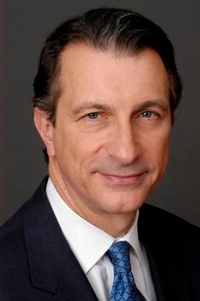|
by Dan Henninger Historians of our era will forever try to pinpoint the event that caused Americans to reduce their politics to a constant lunge at one another's throats. Always in the running for that catastrophe is the Supreme Court's Roe v. Wade decision establishing a constitutional right to abortion. This country's politics will stay polarized until the broad consequences of the Roe decision are resolved. Abortion returned to the fighting cage last week when the court heard oral arguments in the Dobbs case from Mississippi, which passed a law prohibiting abortion after 15 weeks. At the center of this case sits the possibility that the court will overturn Roe and shift U.S. policy on abortion back to the 50 states. Instead of one law on abortion, there would be many, some no doubt incorporating what medicine has learned about pregnancy in half a century. Preventing that from happening is the touchstone of Democratic politics. When Donald Trump nominated Brett Kavanaugh and Amy Coney Barrett to the court, their confirmations became a struggle tied to whether they would overturn Roe. But let us not delude ourselves that the Mississippi Dobbs case is only about abortion. The stakes are bigger than abortion. Roe was decided in 1973, in the shadow of Lyndon Johnson's Great Society and the passage of the 1960s civil-rights laws. However distant in memory for most Americans, for liberals what happened then informs every policy initiative they attempt today, including Joe Biden's Build Back Better bill. From the liberal point of view, these long-ago events, which were enabled by all three branches of the federal government, settled once and for all the question of where the balance of this country's political and moral authority rested — in Washington. Justice Elena Kagan described the reality simply in the Dobbs oral arguments: "There's been 50 years of water under the bridge." If in its decision next summer the Supreme Court sends the setting of abortion policy back to the states, it could put in motion a process of rethinking this 50-year relationship between federal authority and the states. Overturning Roe would erode the foundations not only of abortion but of an entire philosophy of American governance. Liberals abhor federalism. They don't trust the states on abortion, voting or anything else. What they trust and want is single-authority government. During the Dobbs arguments, U.S. Solicitor General Elizabeth Prelogar called abortion a "fundamental right" of women. Overturning Roe would put back into debate whether the states should be responsible not only for this "fundamental right" but also — to pick a few subjects at random — for vaccination mandates, school curriculums, laws relating to gender identity, daycare and climate mandates on the use of energy. Progressives always hit the ramparts over Roe v. Wade because they recognize the larger threat its disappearance poses to the well-established hierarchy of political authority in the U.S. President Biden's greatest utility now may be that he so frequently lets the cat out of the bag. Mr. Biden justifies his multitrillion-dollar proposals for new federal entitlements, climate rules and federal taxes by saying they address the "worst economy since the Depression." When Americans were in the last real depression, they were content to let themselves be ordered around by Franklin Roosevelt and Washington. This time, as opinion polls attest, they are less eager to abide the vast, federalized blueprint that Mr. Biden and the Democrats are drawing up for them. Progressives are in a panic because Build Back Better may not pass by Christmas, or ever, forestalling what could cement forever the primacy of central authority that was put in motion by the New Deal and accelerated by the Great Society and Roe v. Wade. Addressing abortion in the Dobbs oral arguments, Justice Sonia Sotomayor said that Roe created an "entrenched set of expectations in our society that this is what the court decided, this is what we will follow." She aptly summarized the liberal idea of how the U.S. works: If a liberal idea, policy or law remains in place long enough, "we will follow." In other words, nothing can change. But when nothing can be changed or challenged, when the passage of time alone means a public policy is "entrenched," polarization is inevitable. It's a good question whether Washington's ability to legislate has become hopeless with respect to these claims for an immutable political reality — in part because of gerrymandered House seats but more importantly because the permanent bureaucracies are by now well left of center and determined to obstruct change. Would a Supreme Court decision sending abortion policy back to the states disrupt American politics? Yes, though its effect on abortion itself would likely be less than the apocalypse the left purports. The greater good would come from using the country's longest political war to prove to the American people that change is possible, if not in Washington, then in the states where they choose to live. |
 Dan Henninger |

